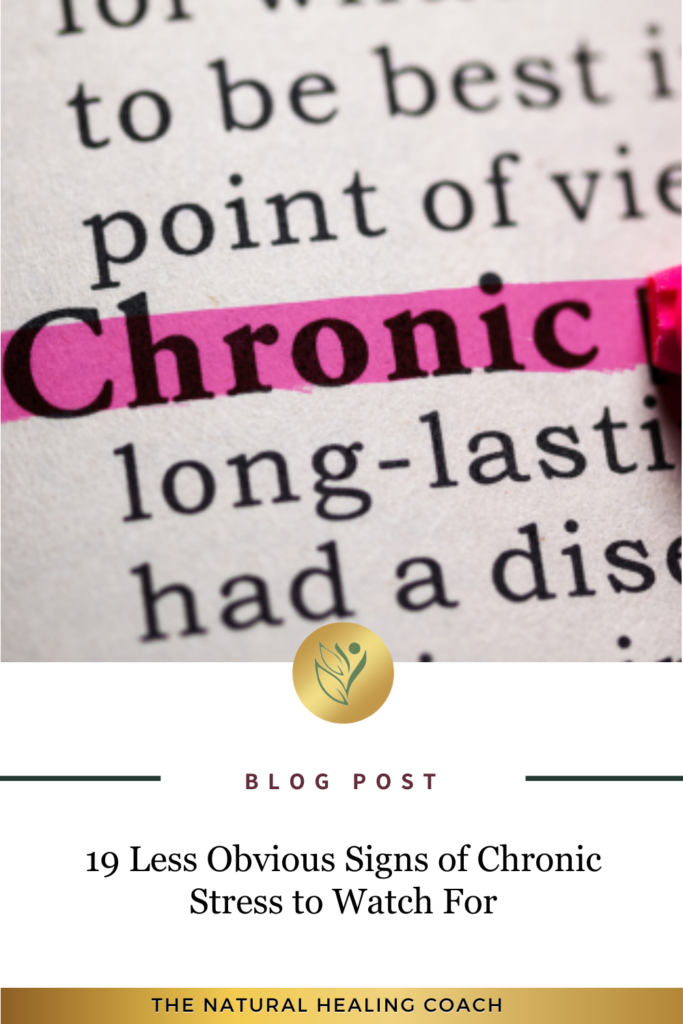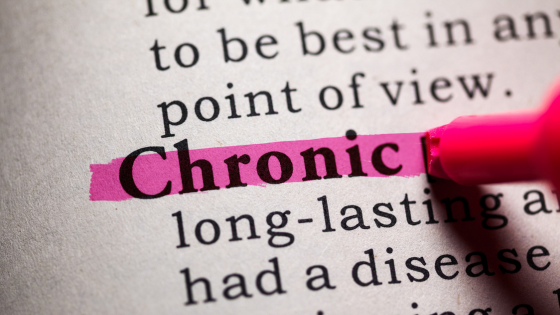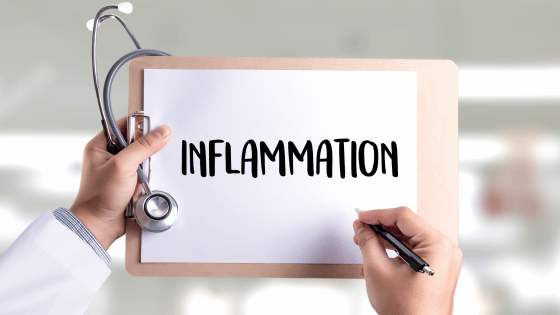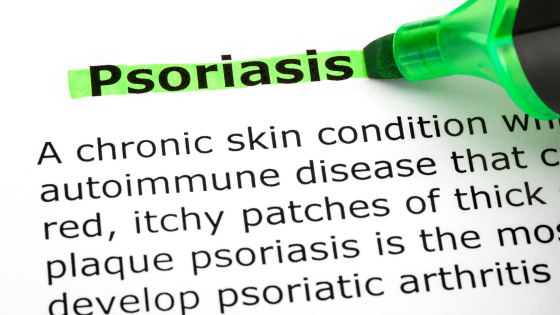Introduction
Chronic stress is a pervasive issue that can significantly impact overall health and well-being. Imagine you’re going through your daily routine, juggling work, family, and personal responsibilities. You might feel a bit more irritable or anxious than usual, but you brush it off, thinking it’s just part of life. However, what you might not realize is that the persistent jaw pain you’ve been experiencing, the sudden bouts of dizziness, and even the frequent night sweats that disrupt your sleep could all be manifestations of chronic stress.
Statistics show that nearly 77% of people experience physical symptoms caused by stress. Additionally, 33% of people feel they are living with extreme stress, and 48% of people believe that their stress has increased over the past five years. Chronic stress doesn’t just affect your mind; it has profound impacts on your body that are often less obvious.
For those with chronic illnesses, stress can be an even more significant concern, acting as a trigger for flares and exacerbating symptoms. Share on XConsider the cumulative impact of stress over time. It’s not just about feeling overwhelmed; chronic stress can weaken your immune system, making you more susceptible to infections. It can lead to chronic conditions such as hypertension and diabetes, and it’s even been linked to heart disease. Furthermore, stress can disturb your sleep, leading to a vicious cycle of fatigue and increased stress.
Recognizing these non-typical signs of chronic stress is crucial, as addressing them early can prevent more serious health problems down the line. Understanding how stress affects the body can empower you to take proactive steps toward managing it effectively. Below, we explore some unexpected symptoms of chronic stress and explain their connections to stress-related physiological changes.
Chronic Stress Signs to Watch For
19 Less Obvious Signs of Chronic Stress
While bleeding gums are typically associated with poor dental hygiene or gum disease, stress can also be a significant contributing factor. Chronic stress impacts the immune system, making the gums more susceptible to inflammation and infection. This can exacerbate existing gum disease or lead to new oral health problems, causing gums to bleed more easily. Stress-induced hormonal changes can also affect the mouth’s environment, promoting bacterial growth and inflammation. Maintaining good oral hygiene, coupled with stress management practices, is crucial for preventing and treating stress-related gum issues.
Jaw pain is often overlooked as a symptom of stress, but it’s a common consequence of teeth grinding or clenching, a condition known as bruxism. This involuntary habit, which often occurs during sleep, leads to significant muscle tension and discomfort in the jaw. Chronic stress increases the likelihood of bruxism, resulting in persistent jaw pain that can also affect the neck and shoulders. Over time, untreated bruxism can cause serious dental issues, including tooth wear and damage to the temporomandibular joint (TMJ), which connects the jawbone to the skull. Addressing stress through relaxation techniques and possibly using a mouthguard at night can help alleviate these symptoms.
Tinnitus, characterized by a persistent ringing or buzzing in the ears, is typically linked to ear damage or infections. However, stress can significantly exacerbate this condition. When under stress, the body’s heightened state of alertness can increase the perception of these auditory disturbances. Stress affects the auditory system by influencing blood flow, nerve function, and the brain’s processing of sound signals, making tinnitus more pronounced and bothersome. Managing stress through techniques like mindfulness, relaxation exercises, and proper rest can help mitigate the severity of tinnitus symptoms.
Blurred vision is usually associated with eye problems or fatigue, but stress can also contribute to this issue. Chronic stress can lead to eye strain and visual disturbances due to prolonged periods of tension and anxiety. The strain can cause difficulties in focusing and maintaining clear vision. Regular breaks from screen time, eye exercises, and stress reduction practices can help alleviate these symptoms and improve visual health.
Eye twitching, or myokymia, involves involuntary muscle movements in the eye area and is often attributed to fatigue or caffeine consumption. However, stress is another significant trigger. When the body is under stress, it releases hormones that can affect the nerves and muscles, leading to these involuntary movements. Eye twitching can be annoying and persistent, sometimes lasting for days or even weeks. Identifying and managing the stressors that contribute to eye twitching can help alleviate this symptom. Techniques such as reducing screen time, ensuring adequate rest, and practicing relaxation exercises can be beneficial.
Cold hands and feet are often considered a circulation issue, but stress can also be a significant factor. Chronic stress triggers the body’s stress response, which can constrict blood vessels and reduce blood flow to the extremities. This reduced circulation results in cold, clammy hands and feet. Managing stress through relaxation techniques, regular physical activity, and mindfulness can help improve circulation and alleviate this symptom.
Frequent yawning is usually linked to tiredness or boredom, but there is also a connection to stress and anxiety. Stress can alter breathing patterns, leading to shallow breathing and a need to take in more oxygen, resulting in frequent yawning. This physiological response can be a subtle indicator of chronic stress and anxiety. Understanding this link can help in developing better stress management practices, such as deep breathing exercises and mindfulness, to regulate breathing and reduce the need for excessive yawning.
Dizziness is commonly linked to inner ear problems or dehydration, but it can also be a result of stress-induced hyperventilation. When stressed, people may breathe more rapidly and shallowly, disrupting the balance of oxygen and carbon dioxide in the blood. This can lead to feelings of lightheadedness and dizziness. Recognizing stress as a potential cause can prompt the adoption of techniques to regulate breathing and reduce stress levels.
Stress has a profound impact on reproductive hormones, leading to irregular menstrual cycles. Chronic stress affects the hypothalamus, a part of the brain that regulates hormones responsible for the menstrual cycle. When stress disrupts the normal functioning of the hypothalamus, it can lead to changes in the timing, frequency, and intensity of menstrual periods. Women experiencing high levels of stress might notice delayed, missed, or unusually heavy or light periods. Recognizing stress as a potential cause of menstrual irregularities can guide women to seek stress management techniques and consult with healthcare professionals for proper evaluation and management.
Low libido, or reduced sexual desire, is often associated with hormonal imbalances or relationship issues, but stress can also play a significant role. Chronic stress affects the body’s production of sex hormones such as estrogen and testosterone, which are crucial for maintaining sexual desire. Additionally, the mental and emotional toll of stress can lead to decreased interest in sexual activity. Stress triggers the release of cortisol, a hormone that can suppress the production of these sex hormones, resulting in a lowered libido.
Furthermore, stress-related fatigue and anxiety can make it difficult to find the energy or mood for sexual activity. Recognizing the impact of stress on sexual health is important for seeking appropriate solutions. Stress management techniques, open communication with partners, and, if necessary, professional counseling can help restore a healthy
Frequent urination is often seen as a sign of diabetes or a urinary tract infection, but it can also be linked to stress. The body’s “fight or flight” response, triggered by stress, can lead to increased activity in the bladder muscles, resulting in a more frequent urge to urinate. This can be particularly bothersome during times of high anxiety or stress. Understanding the connection between stress and bladder function can help individuals seek appropriate stress-relief techniques, such as mindfulness, relaxation exercises, and biofeedback, to reduce the frequency of urination and improve overall comfort.
Dry mouth is commonly thought to be a side effect of medications or dehydration, but stress can also reduce saliva production. When stressed, the body prioritizes functions essential for survival, which can lead to a decrease in saliva production, causing dry mouth. This can lead to difficulties in speaking, eating, and increased risk of dental problems. Techniques such as staying hydrated, chewing sugar-free gum, and managing stress can alleviate dry mouth symptoms.
Muscle twitches or spasms, also known as myoclonus, can be unsettling and are often attributed to fatigue or nutrient deficiencies. However, stress is another significant factor that can cause these involuntary muscle movements. When stressed, the body releases stress hormones such as cortisol and adrenaline, which can affect nerve and muscle function, leading to twitches or spasms in various parts of the body. These movements can occur suddenly and may be more frequent during periods of high stress. Recognizing stress as a potential cause can help in seeking appropriate relaxation techniques and stress management strategies, such as deep breathing exercises, adequate rest, and regular physical activity, to reduce the frequency and intensity of muscle twitches and spasms.
Night sweats are commonly associated with hormonal changes or infections, but they can also be triggered by stress. When the body’s stress response is activated, it can lead to increased sweating, even during sleep. This excessive sweating can disrupt your sleep, causing you to wake up drenched and uncomfortable. The constant interruption of your sleep cycle due to night sweats can lead to fatigue, irritability, and a further increase in stress levels. Addressing the underlying stress through relaxation techniques, improving sleep hygiene, and managing anxiety can help reduce the occurrence of night sweats.
Memory problems are typically associated with aging or neurological conditions, but chronic stress can also impair cognitive function and memory retention. Stress affects the brain’s ability to process and recall information by altering the structure and function of brain regions involved in memory, such as the hippocampus. Prolonged exposure to stress hormones like cortisol can lead to difficulties in concentrating, remembering details, and making decisions. Recognizing the impact of stress on cognitive health is crucial, and incorporating stress management practices like mindfulness, regular exercise, and sufficient sleep can help improve memory and cognitive function.
Hives, or urticaria, are typically seen as allergic reactions, but stress can also cause these itchy, red welts to appear on the skin. When the body is under stress, it releases chemicals like histamine, which can trigger hives. These outbreaks can be uncomfortable and persistent, often exacerbated by ongoing stress. Identifying stress as a trigger for hives can guide individuals to seek stress-reduction techniques and, if necessary, medical treatments to manage the condition.
Experiencing frequent colds is a subtle yet significant indicator of chronic stress. The immune system’s ability to fend off infections is compromised when the body is under constant stress. Cortisol can suppress immune function, making it harder for the body to combat viruses and bacteria. As a result, individuals under chronic stress may find themselves more susceptible to common illnesses, such as colds and respiratory infections. Recognizing the link between stress and a weakened immune system is essential for taking proactive steps to bolster immunity through stress reduction techniques, adequate sleep, and a healthy diet..
Stress can significantly heighten the body’s response to allergens, leading to increased allergic reactions. When under chronic stress, the body’s immune system can become overactive, making it more sensitive to allergens. Stress hormones such as cortisol can influence the production of histamine, a chemical involved in allergic reactions, thereby exacerbating symptoms like sneezing, itching, and hives.
Understanding the link between stress and allergies can help in managing both conditions more effectively. Stress reduction techniques such as regular exercise, mindfulness meditation, and proper sleep hygiene can help in mitigating stress levels and, consequently, reducing the frequency and severity of allergic reactions.
Final Thoughts

Recognizing the less obvious signs of chronic stress is essential for maintaining overall health and well-being. These symptoms, often overlooked, can significantly impact your quality of life if they remain unaddressed. From persistent jaw pain to unexpected night sweats, the physical manifestations of stress can be diverse and disruptive. By being aware of these indicators, you can take proactive steps to manage stress and prevent more serious health problems from arising.
Chronic stress doesn’t just affect your mind; it has profound impacts on your body as well. Symptoms like frequent colds, dizziness, and memory problems might not immediately be linked to stress, but they can be critical signals that your body is under duress. Addressing these signs early can help prevent the development of more severe conditions such as heart disease, hypertension, and severe mental health disorders.
If you find yourself experiencing multiple symptoms of chronic stress, it is crucial to seek professional help. A healthcare provider can offer personalized guidance and support tailored to your specific needs. They can help you identify the root causes of your stress and develop effective strategies for managing it. This might include lifestyle changes, therapy, or medication.
In addition to professional help, incorporating stress management techniques into your daily routine can be beneficial. Practices such as regular exercise, mindfulness, adequate sleep, and maintaining a balanced diet can significantly reduce stress levels. Building a strong support network of friends and family can also provide emotional support and reduce feelings of isolation.
By taking these steps, you can mitigate the effects of chronic stress and enhance your overall quality of life. Recognizing and addressing stress is not just about improving mental health; it’s about safeguarding your physical health and ensuring a balanced, healthy life.
Call to Action
Ready to conquer stress and embrace a more relaxed lifestyle? Introducing the HEALCoach STRESS Protocol – your practical guide to managing stress like a pro. So, what exactly is a stress protocol? It’s like your personal stress-busting playbook, filled with effective strategies and practical tips to help you navigate life’s pressures with ease.
WITH THE HEALCOACH STRESS PROTOCOL, YOU WILL RECEIVE:
- A HEALthier Life STRESS Quiz – A 21-question quiz to help you understand and analyze your health patterns with suggestions based on your results.
- A HEALthier Life STRESS Protocol – Includes day and nighttime routine ideas, and food & lifestyle recommendations.
- STRESS Management Support, Resources & Guides – Diet, lifestyle and self-care support tools, resources & how-to guides to help you create a lifestyle that promotes a healthy body.
- STRESS Labs & Supplement Education – Lab and supplements suggestions to discuss with your doctor that includes the purpose of the labs PLUS discounts on herbs and supplements that you can order online and have shipped directly to you.
Take the first step towards a stress-free life today. Explore the HEALCoach STRESS Protocol and discover how you can transform your stress management approach and enhance your overall well-being. Join us and start your journey to a healthier, happier you!
If you are looking for more tips and support, join me over on my group page, The Village – A Natural HEALing Community, to get tons of information and tips to help you take your HEALTHY EATING and ACTIVE LIVING to the next level.
REFERENCES:
- American Psychological Association. “Stress effects on the body.” APA. https://www.apa.org/topics/stress/body
- Harvard Health Publishing. “The long-term effects of stress.” Harvard Health. https://www.health.harvard.edu/staying-healthy/the-long-term-effects-of-stress
- Mayo Clinic Staff. “Chronic stress puts your health at risk.” Mayo Clinic. https://www.mayoclinic.org/healthy-lifestyle/stress-management/in-depth/stress/art-20046037
- National Institute of Mental Health. “5 Things You Should Know About Stress.” NIMH. https://www.nimh.nih.gov/health/publications/stress/index.shtml
- National Center for Biotechnology Information. “Stress and oral health.” NCBI. https://www.ncbi.nlm.nih.gov/pmc/articles/PMC5930716/
- American Psychological Association. “Stress in America: The State of Our Nation.” APA. https://www.apa.org/news/press/releases/stress/2017/state-nation.pdf
- American Institute of Stress. “Stress Statistics.” The American Institute of Stress. https://www.stress.org/daily-life
- Harvard Health Publishing. “The long-term effects of stress.” Harvard Health. https://www.health.harvard.edu/staying-healthy/the-long-term-effects-of-stress
- Mayo Clinic Staff. “Chronic stress puts your health at risk.” Mayo Clinic. https://www.mayoclinic.org/healthy-lifestyle/stress-management/in-depth/stress/art-20046037
MORE RELATED POSTS:








+leave a comment . . .